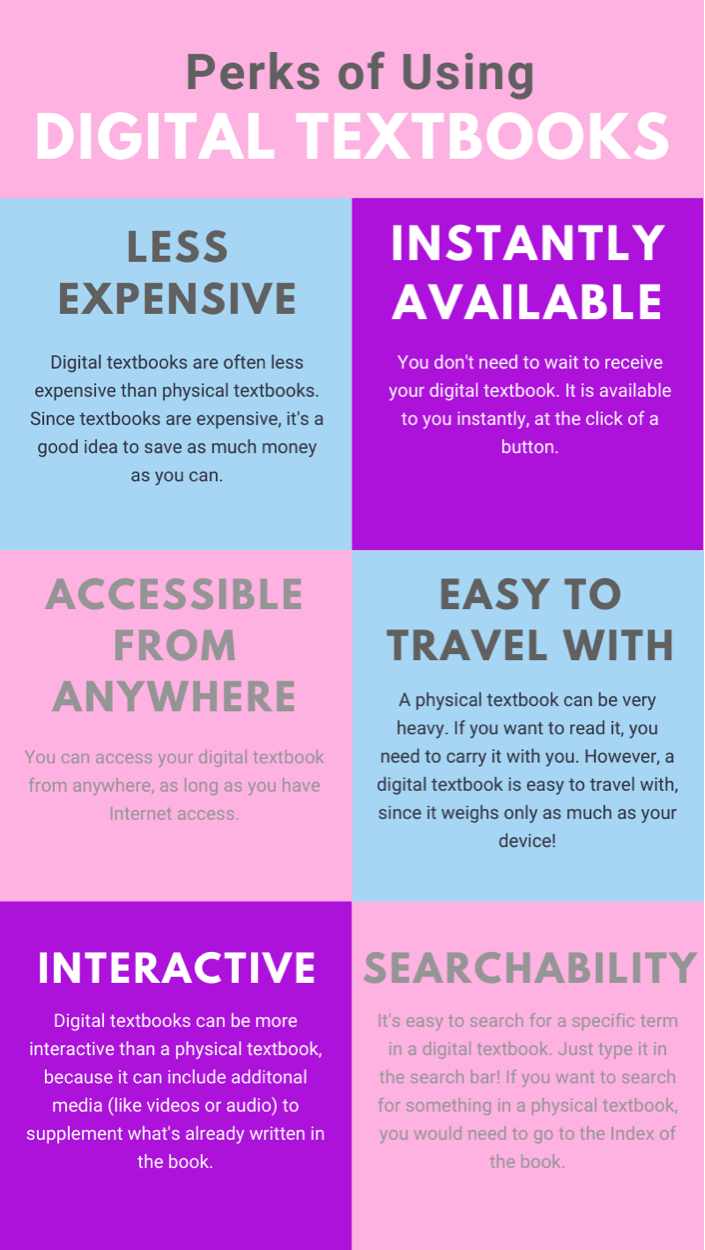In recent years, the number one student resource has slowly started to fade. No matter the subject, the textbook is a tool every student uses for studying and taking notes. Those nights before a test, simply reading the chapter on a particular topic could be a lifesaver. However, the dominance of the internet and digital technology has shifted the focus on the way students learn and teachers teach. This information revolution is as profound as Johannes Gutenburg’s invention of the printing press in the 15th century. With this new technology being so widely available, students consider digital media more convenient, and textbook publishers have also taken note. Online textbooks exist and are readily accessible, so why even bother to get a physical textbook in the first place? Is there any point in having one on your shelf?

Teacher Opinions
There is no better way to answer these questions than to ask the teachers of RHS themselves! Mrs. Germain and Mr. O’Hanlon were interviewed to get a perspective on the matter from the science and history departments respectively.
Mrs. Germain’s Interview:
Q: What do you think will be the future of physical textbooks? Will they still be around in a decade, or will all textbooks go digital?
A: As with other print media, physical textbooks will be with us for some time to come. However digital media usage and popularity will continue to increase. As new study aids and other supplements for digital textbooks are created, it will be increasingly beneficial to switch to online versions of textbooks.
Q: What do you think are the advantages and disadvantages of physical versus digital textbooks?
A: In most cases, a physical textbook is not sufficient alone. It should be supplemented with worksheets, online videos, study guides, and practice tests.
Q: What are the features of a good science textbook? One that is long and full of information, or shorter and right to the point?
A: In most cases a thorough textbook is a better choice since it allows the student to pull out pertinent information that is needed. It can be useful to have the descriptive detailed information when a student needs additional help understanding the content. Most textbooks have in-depth sections as well as review sections which are beneficial to most students.

Mr. O’Hanlon’s Interview:
Q: What do you think will be the future of physical textbooks? Will they still be around in a decade, or will all textbooks go digital?
A: I think that physical textbooks will still be around. I don’t think they will ever purchase enough so that each student has one. It may be more that each department has a set and you can borrow them for a period. Eventually, all textbooks will be primarily online.
Q: What do you think are the advantages and disadvantages of physical versus digital textbooks?
A: Textbooks are an important resource for students to use because it simplifies the information for them. I think students do a better job of reading when it’s a physical textbook. However, I like the convenience of an online textbook. Online textbooks give you the freedom to access the resource whenever and wherever. Ultimately, I think both are really important for students to have.
Q: What are the features of a good history textbook? One that is long and full of information, or shorter and right to the point?
A: A good history textbook simplifies the information for students. It should be easy to read and easy to follow along. It should give a clear direction as to what the students need to learn through the chapter or section. It also should clearly organize the information from the time period it’s focused on so that students, as they read, can get a general understanding and idea for the key ideas, themes, and components for the given topic.
Q: Since there are so many resources online, should RHS still invest in physical textbooks or move on to more modern teaching tools?
A: I don’t think you can ever replace what the physical textbook does. Online, in any way, always leads students to getting distracted. I also notice students have a harder time comprehending what they’re learning when they look at the screen. The physical textbook keeps them in the moment with what they’re learning.
Photos and media provided by Hanna Nishikawara
